At the “midpoint” of THE MATRIX (1999), a near-future sci-fi epic about a post-apocalyptic world where machines have subjugated humans and relegated them to a false computer-generated world where they can be controlled as a source of energy, the villain, a sinister anthropomorphic computer program known as Agent Smith captures and tortures “Morpheus”, the leader of the human resistance. Morpheus (played by Laurence Fishburne) is a sort of mystical guru, an Obi Wan Kenobi figure who has become much more than just a leader, and the machines believe that by capturing him, they can lure their actual target (Keanu Reeves’ “Neo”) into the open.
While the machines wait for Neo to arrive, Agent Smith explains to Morpheus the origins of The Matrix as well as his own personal motivations for his ruthless behavior. It’s a scene worth watching in full because, from a screenwriting perspective, it breaks a lot of rules. It’s very long, for one thing… more than four minutes total. To put that length in perspective, the Hollywood assumption is that every page of a screenplay represents one minute of screentime, which means that in the screenplay for The Matrix, this one speech alone ran on for four pages. That is ridiculous. The scene is also very talky and full of exposition, a screenwriting “no-no” in a world where the cardinal rule is “show don’t tell”, but it’s delivered with a level of aplomb by Hugo Weaving that makes it almost impossible to look away.
The scene begins with a fascinating anecdote about the development of the first version of The Matrix which perfectly sets the table for the point I want to make in this essay.
“Did you know that the first Matrix was designed to be a perfect human world…where none suffered… where everyone would be happy. It was a disaster… no one would except the program… entire crops were lost. Some believed that we lacked the programming language to describe your perfect world, but I believe that as a species, human beings define their reality through misery and suffering. The perfect world was a dream that your primitive cerebrum kept trying to wake up from…”
I think this is close to the mark, but it’s not a bullseye. I don’t believe it’s accurate to say that humans prefer misery and suffering, rather I think that human beings are natural strivers. We need to be challenged and to overcome those challenges as a critical part of living a happy and fulfilling life. Sometimes the challenge that must be overcome involves misery, but not always, and misery itself is never the challenge in and of itself, but rather a symptom of it.
In my youth I was a high-altitude mountaineer. Twenty years ago, I successfully summited Denali (20,310 feet) in an attempt that lasted 19 days. Certainly that effort was filled with misery and suffering… the success rate for summit attempts on Denali is low, but it wasn’t the relentless misery that drove me to summit that mountain, it was something else.
I prefer to think of it as Anthony Hopkins does in THE EDGE, a movie about survival and the power of the human spirit. He says “I always wanted to do something that was… unequivocal.” I think that’s much closer to the bullseye. For me, climbing Denali was something unequivocal, and I wanted it on my personal resume… for bragging rights, sure, but also because I’m a human being and human beings need challenges to overcome. Without them, we wither and die. We are a species that dreams of doing things that are unequivocal… or at least we used to be.
At the risk of engaging in “get off my lawnism”, it seems to me that over the last two decades, society and the culture have shifted significantly and are now promising the citizenry an existence free of misery, suffering, stress and anxiety… the great password in modern America has become “safety first.” This promise of total safety and security is impossible to deliver, of course, but even if it were not, I would use the word “existence” very deliberately. The world we are creating feels less and less like one inhabited by proud human strivers and more like a world filled with prey animals afraid of their own shadows.
What comes next? Maybe this…
I had never heard of the Universe 25 experiment before last month, when I heard it referenced twice, on two unrelated podcasts, in the same week. Universe 25 was an 1968 experiment designed to study the behaior of a large mouse colony. Four mice were introduced into a huge habitat with enough space for 3,000 mice. The luxurious space included private apartments and all the food and water they could ever need.
Barely a year into the experiment, the colony collapsed in an orgy of violence, abnormal sexual behavior, selfish antisocialism and even cannibalism…
Scientists at the time blamed overcrowding, but I’m not so sure about that. The fact is that the colony began to collapse long before the mouse population reached capacity.
What strikes me about the experiment is that the lead scientist created a world where all of the inhabitant’s basic needs were provided for, where it took no effort at all to survive, and where each new generation was born into a world where nothing was required of them except to keep breathing.
What the Universe 25 scientists created was a world without strivers. And that world collapsed, gruesomely, in a way that is shockingly reminiscent of American society here in 2024. Feel free to check out the gory details, but fair warning, you may not sleep very well tonight.
This is one reason why I believe the movies are so important and why it’s a tragedy that the communal experience of going to the movies is becoming a thing of the past for most Americans. At their heart, movies are about struggle, risk, misery and finally… triumph.
In short, they are about the human experience.
The movies give us heroes who do unequivocal things, who are utterly transformed over two hours by the magic of the “character arc” into examples to live by. When I was a kid playing in the woods, I imagined I was Indiana Jones or Han Solo or or Dutch or Chief Brody. I had seen those men on movie screens thirty feet high overcoming immense challenges, only to come out the other side better men for having endured a life-or-death struggle against a dangerous antagonist.
The movies remind us of the transformative power of suffering in the context of trying to achive something unequivocal. When suffering and triumph become permanently untethered in a society, bad things happen. I don’t think it’s a coincidence that this American cultural decline we currently find ourselves in has occured right alongside the collapse of the communal theater-going experience.
Healthy human cultures use stories told person-to-person as a way to entertain, yes, but also to pass down morality, wisdom and basic how-to instruction. For years, Hollywood performed this most basic function for Americans. But as Hollywood has faded, we have retreated into our own curated entertainment silos where we ravenously consume short addictive bites served up to us by an algorithm that wants us passive, glassy-eyed and stationary.
Our human Universe 25 feels like it has begun its own final collapse, and it is doing so in the harsh reflected glow of a billion eight second Tik Tok videos where striving for unequivocal things is bad for the bottom line.
If you would like to support the work we do here at The Continental Congress, please take a moment to like, subscribe and share this Substack. You can also pre-order Michael Walsh’s upcoming collection of essays “Against the Corporate Media” to which George contributed an entry. Thank you, so much, for your time and your patronage!




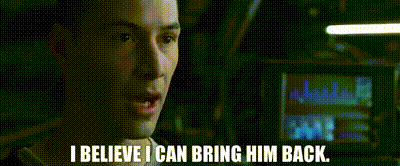
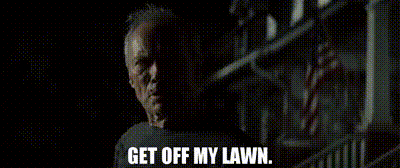
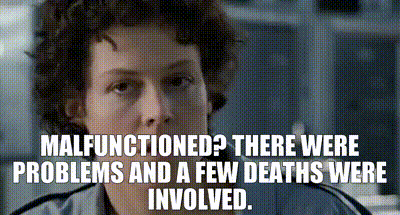
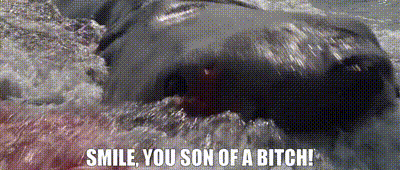
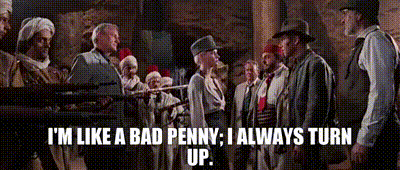
I'm a bricklayer and for years I carpooled with another bricklayer 20 years older. At the end of the day we would jump in the truck and I'd say, "you're killing me Junior." He would reply, "I'm just trying to lay one more brick than you." Funny, that's just what I was trying to do.
Strive for excellence, pursuing happiness; things worth doing even if you don't quite make it. Once again Your Excellency, right on the mark.
I've had my own personal experience similar to the Universal 25 experiment. My very first pets were a couple of gerbils. They of course bred, which eventually led to another cage. Two cages was enough to clean, so what was one to do. Well, they took care of that by way of cannibalizing the babies. Pretty gruesome to watch as a child, but lesson learned. I appreciate that you put an even more precise finger on it, even after all these years. Thanks so much for your insight, and all that you do!